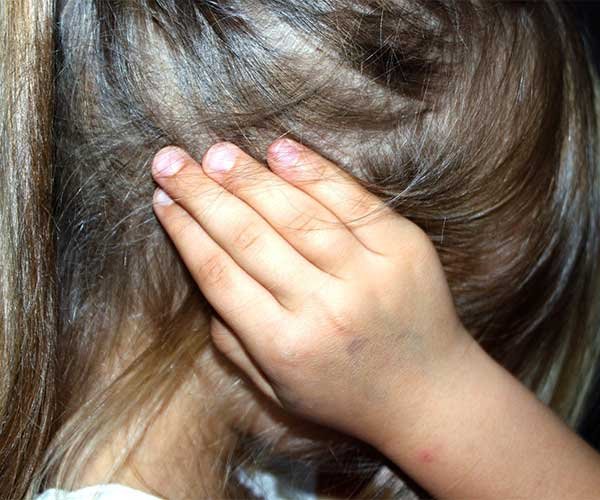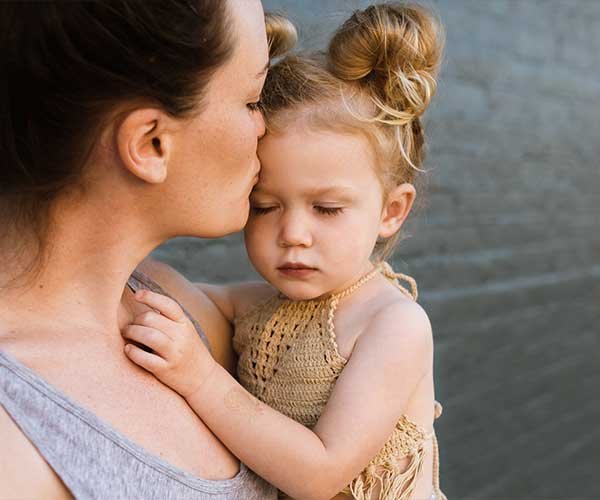
Children and adolescents are more vulnerable to trauma than adults. But when they receive the right support and reassurance, their recovery will also be faster.
How Does Trauma Affect Children?
Traumatic events or natural disasters can cause intense, confusing, and frightening emotions for children and teens.
These events, especially if they arise from acts of violence, can threaten their sense of security and leave them feeling helpless and vulnerable. Even if the kids or teens did not directly experience these events, they might feel traumatized when repeatedly exposed to images of the incident on the news or social media.
Effects of Trauma on Kids and Teens
Children age five and under may show signs of fear, clinginess to their caregiver, immobility or aimless moving, or thumb-sucking or bedwetting.
School-aged children may lose interest in socialization and playing games, get nightmares or experience sleep problems, become irritable, disruptive, or angry, have trouble focusing on school, or complain of physical problems.
For adolescents, they may get flashbacks to the event, nightmares, or other sleep problems, or avoid everything that reminds them of the incident. They may even resort to drugs, alcohol, or tobacco use, act disruptive, disrespectful, or destructive, have physical complaints, lose interest in hobbies and interests, and have suicidal thoughts.
Regardless of your child’s age, it’s crucial to offer extra reassurance and support after a traumatic event. Your response as a parent can significantly influence your child’s response, so it’s essential to educate yourself about trauma and the stress that comes with it.
If you know the symptoms, effects, and treatment options for trauma, you’re better equipped to help your child recover.
Here are some tips to help your kids recover from trauma faster:
1. Limit media exposure
Constant media coverage of the traumatic event can further traumatize your child, whether or not he was directly affected by it. Minimize your child’s media exposure to the traumatic event by restraining him from repeatedly watching disturbing footage or images from the incident. Make it a point to watch news reports of the traumatic event with them so you can help reassure your child as you’re watching and help put information in context.
2. Spend time with your child

Provide an environment for your kids where they can safely ask questions and communicate what they’re feeling. Provide them opportunities to talk about their experiences and concerns and what they see on the news.
The traumatic event may bring up unfounded fears and issues in your child. Still, it’s crucial to make them feel that their feelings are understood and accepted.
Reassure your child that the event was not their fault, and it’s OK for them to feel angry or scared. However, keep in mind not to pressure your child into talking. Some kids will find it hard to talk about their traumatic experiences. It might be more comfortable for a young child to draw a picture that illustrates their feelings rather than to talk about them. You can then discuss with your child what they’ve drawn.
While you should filter the information you share according to your child’s age, make sure to practice honesty still. Don’t say nothing’s wrong if there is something wrong.
Encourage your child to do normal activities that are not related to do the traumatic event, like seeking out friends and pursuing sports and hobbies that they enjoyed before the incident. Plan for family outings, or a game or movie night.
vie night.
3. Encourage physical activity
Help your child burn off adrenaline, release mood-enhancing endorphins, and sleep better by encouraging them to engage in physical activity.
Activities that require moving both the arms and legs, such as basketball, soccer, running, martial arts, or swimming, can help stimulate your child’s nervous system from that “stuck” feeling that results from a traumatic experience.
If they are uninterested in sports, try playing some of their favorite music and dance to it together, or encourage them to play with friends or a pet.
4. Feed your child healthy food
Your child’s diet can significantly affect their mood and the way they cope with traumatic stress.
Processed and instant food containing refined carbohydrates and sugars can lead to mood swings and worsen symptoms of traumatic stress. Give your child plenty of fresh fruit and vegetables and food high in protein and healthy fats.
Make sure that you are also setting a good example with your diet. Cook more meals at home, and make mealtimes a time for heartfelt conversations.
5. Rebuild trust and safety
Trauma can make the world seem dangerous and frightening to a child and may cause your child to have difficulty in trusting their environment and other people.
To help rebuild your child’s sense of safety and security, establish a routine that includes homework, play, family activities, and rest. Making plans can also help counteract your child’s feeling that the future is scary and uncertain. Keeping your promises can also help rebuild your child’s trust, so be consistent and make sure to follow through on what you say you’re going to do.
When to see a professional for your child’s trauma
The emotional effects of a traumatic event to your child will typically start to fade within a relatively short time. However, if you feel that the traumatic stress reaction is prolonged, too intense and persistent, and is interfering with your child’s daily routines, they may need help from a mental health professional, preferably a trauma specialist.
It can be challenging to understand what traumatized children need the most, especially since trauma often leaves a child unable to communicate their feelings and thoughts healthily.
These tips above are crucial starting points in helping your child work through his or her trauma and build the foundation for a healthy relationship with you as the parent or caregiver.
Courage Community Foster Care finds placements for foster children in Colorado. Be a foster parent today and create a difference in this world. Visit our website at https://fostercourageco.org/ to find out how. You may also call us at 719-321-4319.

Recent Comments